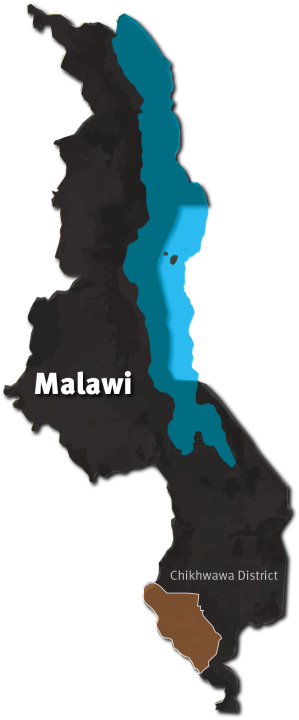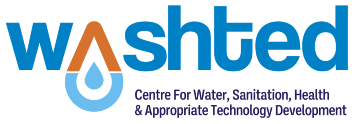The Sustainable Off-Grid Electrification of Rural Villages (SOGERV) Project was funded by the Scottish Government from 2015 – 2018. The project was led by the University of Strathclyde and partnered by United Purpose-Malawi and the Centre for Water, Sanitation, Health and Alternative Technology Development (WASHTED). SOGERV aimed to improve sustainable energy access to rural communities in Chikwawa District, Southern Malawi.

What motivated the project?
According to the most recent estimates, only 12% of Malawi’s 18 million people are connected to the main electricity grid.
In rural areas, connection is roughly 2%. Overall energy consumption is dom
inated by the use of traditional biomass at 89% of the total. With the population growing at around 3% per annum, increasing biomass demand is causing widespread deforestation.
The electricity grid has an installed capacity of 360MW – primarily hydro generation located on the Shire river – that struggles to meet peak demand. This is exacerbated by increasingly erratic rains and Shire water levels decreasing,
Off-grid electricity is a growing sector in Malawi with numerous initiatives focusing on mini-grid deployments and community energy schemes. However, the sector is still young and learning on sustainable models for off-grid electrification in the Malawian context is vital. A community energy model is common for rural energy projects in Malawi with the model typically including community ownership and operation and targeting a public facility such as a primary school or health centre. Despite the high impact, many of these projects have fallen short of sustainability expectations.
What was the approach?
Working in 4 communities in Chikwawa District, SOGERV set out to establish sustainable energy businesses, testing alternative business models and establishing long-term support structures. Taking a needs based, consultative approach, SOGERV worked closely with local governance structures, from VDC to DEC, and delivered a comprehensive programme of capacity building and training on Renewable Energy Technology (RET). The focus of the community energy businesses was to provide local supply of RET household products, in addition to providing a range of supply options for small Productive Use of Energy businesses. Each business operates a ‘Charging Station’ (alternatively called a Kiosk) powered by a 4kW PV array and provides a range of battery charging services, ‘wired’ small business connections, Solar PV system rentals and Portable Solar Product sales. Local schools and health posts were also offered energy supply under a sustainable arrangement to cover ongoing maintenance.
What was achieved?
At time of project reporting in September 2018:
- Community energy supply businesses have been established in the communities of Mandrade, Kandeu, Gola and Thendo in Chikwawa – commencing operation between March and November 2017. Collectively, these businesses have achieved substantial turnover and have a sustainable financial forecast.
- Renewable energy is now available to around 76,100 people (estimated population of the 4 communities – indirect beneficiaries) who can now purchase quality RET products locally from informed, community orientated suppliers, and can access businesses, schools and health posts that now have improved energy services.
- 845 households have purchased RET products, meaning the percentage of households utilising RET in these communities has risen from 3.7% to 9.3%, improving energy access for 4215 people.
- In total, 7713 customer interactions have been recorded. 2 schools and 2 health posts have taken the option of energy supply.
- 104 teachers have purchased sustainable energy products.
- 18 Productive Use of Energy businesses are operating using energy supplied by the community energy businesses.
- RET capacity building has been delivered to 425 men and 232 females.
- In the schools with RET, records show 7346 boys and 4242 girls studied at night with RE in classrooms. On average 56 per night (33b, 23g).
What did we learn?
In addition to holding project specific dissemination events and workshops, the SOGERV team in Malawi have interacted widely with initiatives in the sector, contributing project learning and supporting policy and strategy development.
Project working papers:
- SOGERV Needs Assesment
- WASHTED Preliminary Baseline
- SOGERV Solar PV Design Specification
- Market Assesment of Solar Microgrids in Malawi
- Malawi PAYG report
Policy Briefs:
Case Studies:
Workshops and dissemination events:
Associated Publications:
- NCST 2017 – 3 SOGERV Papers
- Predicting sustainability of PV systems installed in Sub-Saharan Africa
- Energy Access Options Appraisal
- Mini-Grid Planning in Developing Countries
- Sustainability analysis of PV systems in Malawi
Video Project:
Quick link to all blogs and photo projects:
